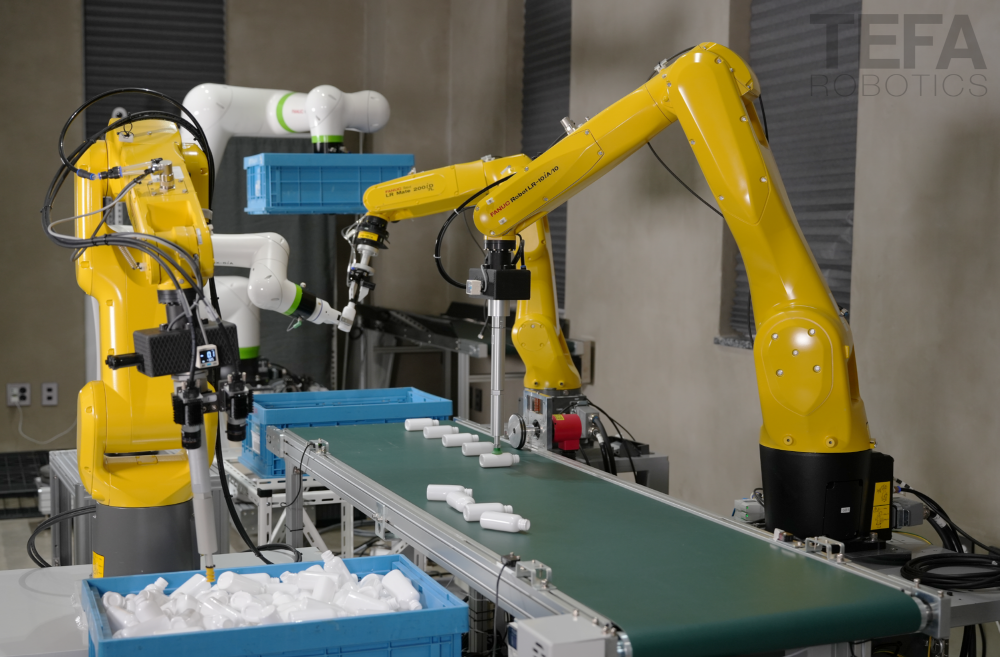South Korean startup Tefa Robotics, which develops Physical AI for industrial robots, has secured approximately USD 1.45 million(KRW 2 billion) in Pre-Series A funding. The round was led by FuturePlay, with IBK Venture Investment and KDB Capital joining as new investors.

Founded in 2023, Tefa Robotics is an industrial robotics startup co-founded by CTO Jonghyun Baek, who previously oversaw articulated robot control and programming at FANUC Korea, and CEO Junghyuk Park, who earned a Ph.D. in AI from the University of Tokyo. Their mission is to enable efficient factory automation by integrating Physical AI into industrial robots.
Physical AI refers to artificial intelligence that operates in the physical world, performing real-world tasks. It goes beyond recognition AI (e.g., image/audio recognition) and generative AI (e.g., text/image generation). At CES 2025, NVIDIA CEO Jensen Huang predicted Physical AI would become a USD 50 trillion industry, highlighting robotics as a core pillar of the company’s future.
Tefa Robotics is applying this Physical AI to industrial robots, which are deployed at a global scale of around 600,000 units annually. With their high reliability and scalability, industrial robots offer a powerful platform for deploying Physical AI. However, their closed architectures and complex control environments make R&D significantly challenging.
Aram Jeon, Principal at FuturePlay and lead investor in this round, commented “Industrial robots must flawlessly handle edge cases in high-speed, high-precision environments. Tefa Robotics is a rare team capable of deploying Physical AI in mass production environments, thanks to deep domain expertise and a proprietary data generation pipeline. We believe they possess foundational technology strong enough to compete with global tech giants.”
CEO Junghyuk Park added “Real-world data is critical for developing Physical AI. Tefa Robotics has already validated its performance by fine-tuning open-source Robotics Foundation Models (RFMs) with over 800,000 proprietary real-world data samples. We are currently piloting this model with industrial clients and plan to scale data collection to build large-scale Physical AI.”
MORE FROM THE POST
- Raion Robotics Secures USD 16.5M in Series A Funding to Target the Global Robotics Market
- MetaFarmers Secures $2.3M Pre-Series A Funding to Advance Agricultural Physical AI Robotics
- NanoSystems Secures Pre-Series A Funding to Advance 3D LiDAR Solutions for Industrial Safety and Robotics
- Beyond Honeycomb Raises $7.2M in Series A Bridge to Scale AI Cooking Robots Production and Expand Globally
- ROAI Secures USD 1 Million Seed Funding to Develop AI-Powered One-Click Smart Factory
- AI
- EN
- funding
- futureplay
- IBK Venture Investment
- investment
- KDB Capital
- Korea
- Korean startup
- physical ai
- pre-SeriesA
- robot
- robotics
- Tefa Robotics



Leave a Reply